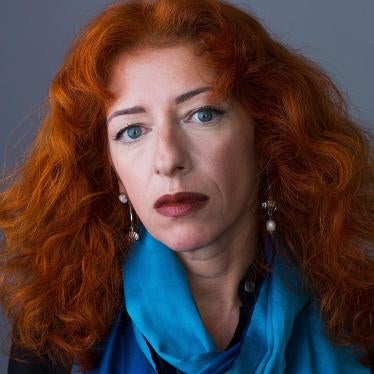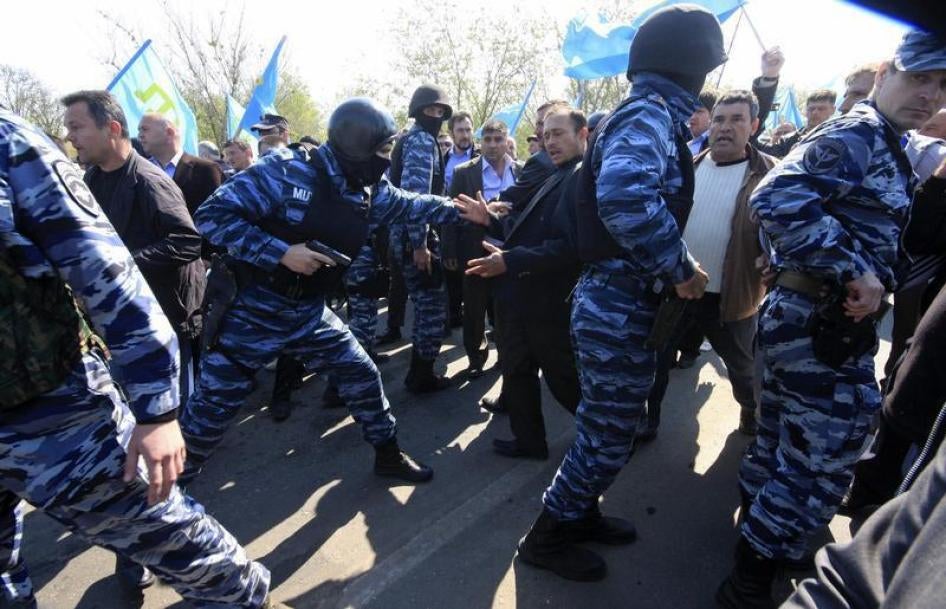Russia is tightening the screws on critics of its actions in Crimea.
On April 13, 2016, the Russia-appointed prosecutor in Crimea, Nataliya Poklonskaya, ordered the Mejlis – the representative body of Crimean Tatars – to stop all activities. Two months earlier, Poklonskaya had asked the Supreme Court of Crimea to ban the Mejlis as an “extremist organization” on par with Al Qaeda and the Islamic State, also known as ISIS. The case is still ongoing but the executive authorities apparently did not feel like waiting for the judicial system to do its part and moved ahead to suspend the organization preemptively before a court decision officially banned it.
In her submission to the Supreme Court, Poklonskaya accuses the Mejlis of a range of supposedly extremist activities, such as organizing a rally on February 26, 2014, against the annexation of Crimea that led to clashes between Mejlis supporters and pro-Russian activists, calling for a boycott of the 2014 Crimean referendum on entering Russia and holding unsanctioned demonstrations in support of the leader of Crimean Tatars, Mustafa Dzhemilev, who was banned by Russian authorities from entering Crimea, and calling for Crimea’s return to Ukraine. The Tartars are a Muslim ethnic minority native to the Crimean peninsula.
It’s true that the Mejlis, which represents Crimean Tatars in their dealings with the authorities and international bodies, has repeatedly condemned Russia’s occupation of Crimea, rejected Kremlin’s efforts to co-opt it, and organized anti-occupation rallies.
Russian authorities have used the country’s vaguely worded and overly broad anti-extremism legislation to clamp down on the dissenting community. This included issuing several “anti-extremist warnings” to the Mejlis; banning mass public gatherings by Crimean Tatars, conducting invasive searches at mosques, Islamic schools, and homes of active members of the Crimean Tatar community, shutting down Crimean Tatars’ media outlets, subjecting activists to vicious harassment, banning some Tartars from entering Crimea, and opening dubious criminal proceedings against others.
Under the given circumstances, the impending ban of the Mejlis is not surprising, but it is still clearly unacceptable. The Kremlin is doing nothing less than seeking to silence organizations and activists who dare to openly criticize the occupation and identify Crimea as part of Ukraine. Some critics, like the leader of Crimean Tatars, Mustafa Jemilev, and head of the Mejlis, Refat Chubarov, have been forced into exile for their uncompromising stances. Others, like Crimean filmmaker, Oleg Sentov, paid with their freedom, sentenced to years behind bars on bogus criminal charges. Freedom of expression, a basic cornerstone of a democratic system, is on the line in Crimea. It’s time for the Kremlin to stop the campaign against the Mejlis and learn that democracy and respect for basic rule of law means respect for dissent.










